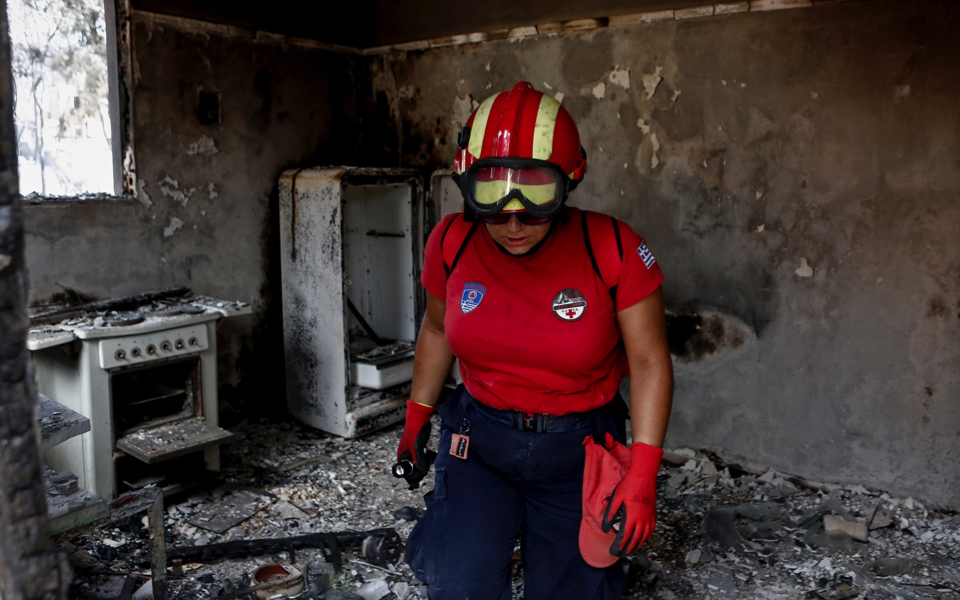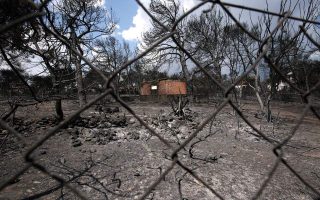As officials fault past failings for disaster, report says area was high-risk

With the death toll from Monday’s devastating fire in eastern Attica climbing to at least 85 Thursday and with dozens still missing, authorities appeared intent on convincing people that the disaster was not preventable.
However, according to a report published Thursday by a research team at the University of Athens, Monday’s conflagration was a “characteristic example of a fire in a mixed zone of forest and settlements which has the highest probability of human losses in Greece and globally.”
The report by the team – which was led by Efthymios Lekkas, professor of dynamic tectonics and applied geology – also said that there are many such areas in Greece.
Moreover, the loss of so many lives in an area of just 1,300 hectares is considered unprecedented in modern European history.
The deadly fire in Ilia, southern Greece, in 2007 was 100 times bigger, according to Lekkas, while the fires in Portugal last year, which left 66 dead, burnt an area of 45,000 hectares.
The area around Mount Pendeli and along the coast of eastern Attica was considered a high-risk zone and authorities were reportedly well aware of the dangers, prompting questions in the media as to why preventive measures had not been enforced.
The University of Athens report also said that the strong winds on Monday played a very significant role in the fire’s rapid spread.
Meanwhile, Nikos Michalopoulos, the director of the observatory’s Institute of Environment and Sustainable Development, told Kathimerini that the Attica Regional Authority has started talks with the relevant state institutions to set up an early warning system for natural disasters.
“The technical tools exist,” he said, adding that the issue of financing and who manages the data must be resolved.
Tellingly, Lekkas’s team said that people near the coast were informed of Monday’s fire by evacuees from the Mati resort and not by any warning system.





